In China, people like to celebrate holidays “renao 热闹” – “warm and loud”. With a little luck, however, the Christmas season also offers a few quiet hours there, which can be spent with a good book, for example. Ning Wang has taken a look at the most important and exciting new publications on and from China this winter. It includes everything, from an in-depth look at the country’s recent history to bizarre insights into the party’s cronyism.
Nico Beckert reviews a piece on digital global conquest strategies by political scientist Jonathan Hillman – and cannot give a wholehearted recommendation. Our book special concludes with a profile of the author and cultural mediator Françoise Hauser, who, despite her extensive China expertise, says: “I’ll never know everything about China, and I think that’s great.”
Of course, our Briefings also keep you up to date on the latest news and developments. Because what is currently happening in China and Hong Kong could fill another thousand books.

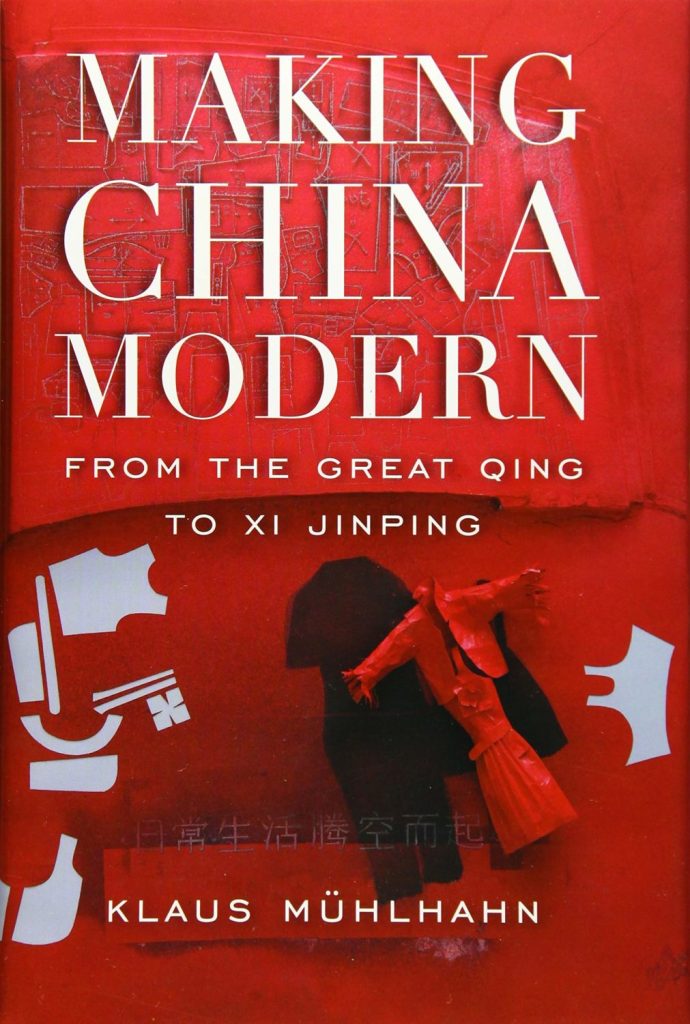
Klaus Muehlhahn’s book explores China’s rise throughout history, from the Qing dynasty to Xi Jinping’s modern China. The sinologist and cultural scientist has also set a focus on China’s institutions that helped shaped the country. How have these institutions changed China? What impact had their influence on the lives of the Chinese people? These are the central questions that run like a thread through the 730-page mammoth project.
Muehlhahn helps the reader understand the story of China through its long history by highlighting its great achievements and also its setbacks on its way to becoming the economic superpower of today.
Making China Modern: From the Great Qing to Xi Jinping
Klaus Muehlhahn
Belknap Press: An Imprint of Harvard University Press; Reprint edition
736 pages
ISBN-13: 978-0674737358
€36.00 (hardcover), also available as ebook
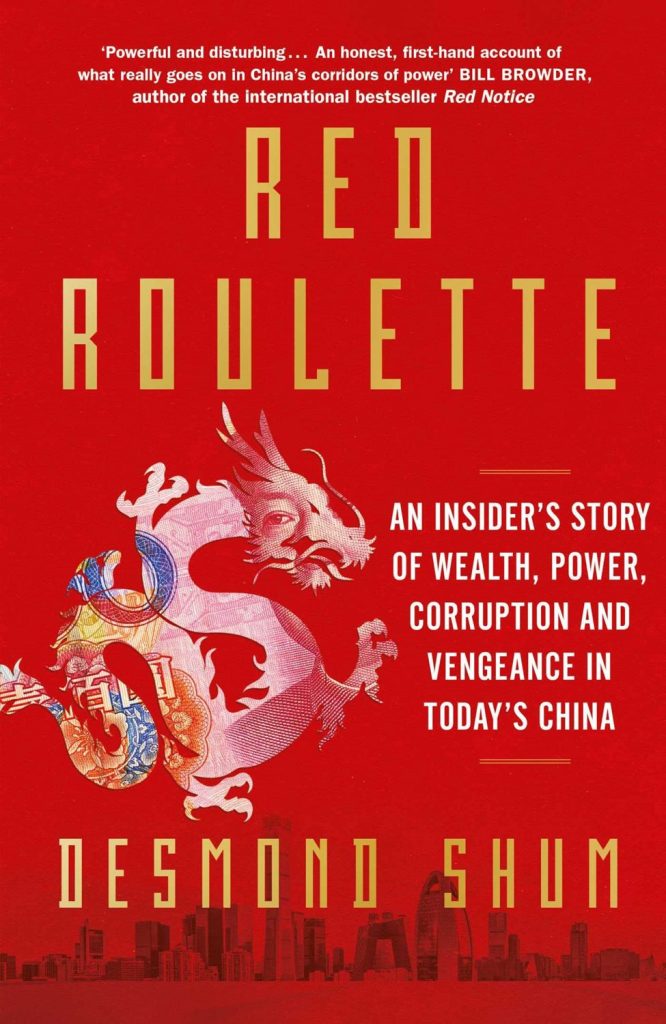
Shortly before his book “Red Roulette” was published this fall, Desmond Shum received two phone calls from his ex-wife Whitney, who was thought to have disappeared up to this point. Shum hadn’t heard from her in four years. She had not returned home from her well-secured, marble-adorned Beijing office on September 5, 2017, Shum recounts. And now she was suddenly pleading with him from the other end of the line to cancel the book’s publication at the last minute. Yet Shum had also written the book to explain to their son where his mother might be and how she suddenly disappeared without a trace one day.
Whitney Duan (a.k.a. Duan Weihong) was well-connected as a businesswoman to the highest circles of the Communist Party for years. The wife of then-Premier Wen Jiabao called her simply “Auntie Zhang”.
A central aspect of Shum’s memoirs about his ex-wife’s business relations with Zhongnanhai’s CP elite is the IPO of Ping An, one of the largest insurers in the country, in 2004. Wen Jiabao’s relatives reportedly had invested in Ping An before the IPO. Shum writes about the corruption within the party not as an outsider, but as someone who has accompanied the business dealings of the “red aristocracy” and made a profit in the process. His book paints a fascinating picture of how China’s elite used money, power, and caprice to consolidate and expand its position in the 1990s.
Red Roulette – An Insider’s Story of Wealth, Power, Corruption, and Vengeance in Today’s China
Desmond Shum
Scribner Book Company
320 pages
ISBN-13: 978-1982156152
$30
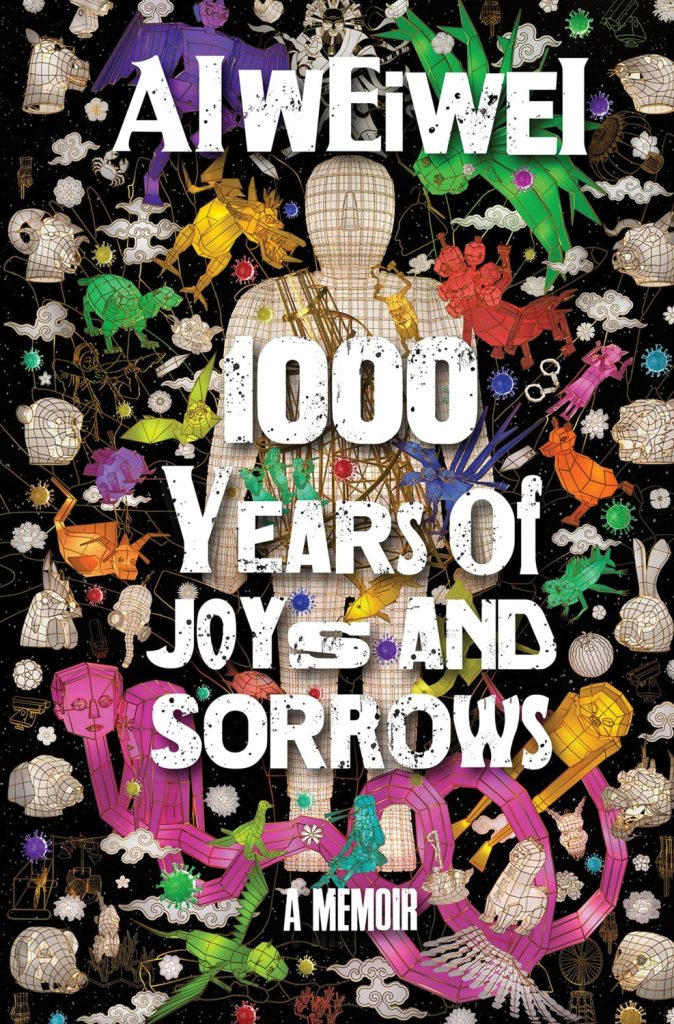
Ai Wei Wei has written a book for his son. It is supposed to give an insight into Ai’s life – probably also because the artist himself could hardly ever speak openly with his father about his past. Thus, the book is also a tribute to Ai Wei Wei’s father Ai Qing, who was a well-known poet in China during his lifetime. When Ai talks about his father, he does so primarily by incorporating his poems and mixing fiction with his memories.
As a ten-year-old during the Cultural Revolution, Ai had lived with his father for over a year in a cave in the region of Xinjiang. For his criticism of Mao Zedong, Ai Qing was sent to the countryside, where he had to clean toilets. It was not until 1979 that he was rehabilitated and was once again allowed to publish his works. His father’s steadfastness left a deep impression on him back then, writes Ai Wei Wei, who himself had to spend 81 days in solitary confinement. On April 3, 2011, plainclothes police officers had arrested him at Beijing airport and prevented him from leaving the country. His son was just two years old at the time.
“During my own period of secret detention, I felt the need to reconsider my relationship with my father, and I decided to write an account of his life and mine and share it with my son, Ai Lao,” Ai Wei Wei says, explaining his motivations for writing the book.
1000 Years of Joys and Sorrows: A Memoir
Ai Wei Wei
Crown
400 pages
ISBN-13 : 978-0553419467
€28,99, also available as ebook
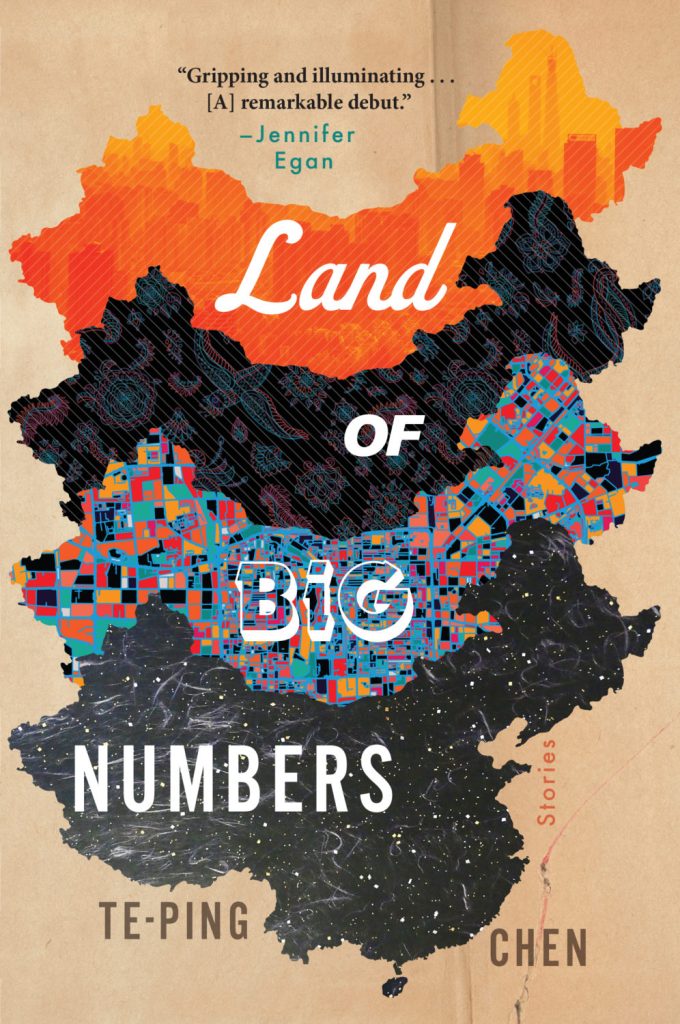
Contrary to its title, this book is not a collection of statistics and data on China. Rather, US journalist Te-Ping Chen has compiled short stories inspired by her work as a correspondent in China for Wall Street Journal.
Chen describes the living conditions of the Chinese people in a complex and diverse way, interweaving the plot with current social developments. The Internet, for example, is one of the key themes in a story about a pair of twins. While her brother rises to prosperity through the Internet by designing online video games, it becomes more and more of a threat to his sister. Unlike her brother, she has worked hard in school and earned good grades, but she speaks out critically on an online forum. For her comments about injustice, she eventually ends up in jail. In the end, the twins’ father wonders which of the two did the right thing and what really matters in a rapidly changing society – questions that also haunt readers in the West.
Land of Big Numbers
Te-Ping Chen
Mariner Books
236 pages, One of Barack Obama’s Summer Reading Picks
ISBN-13: 978-0358272557
$15,99, also available as ebook and audiobook
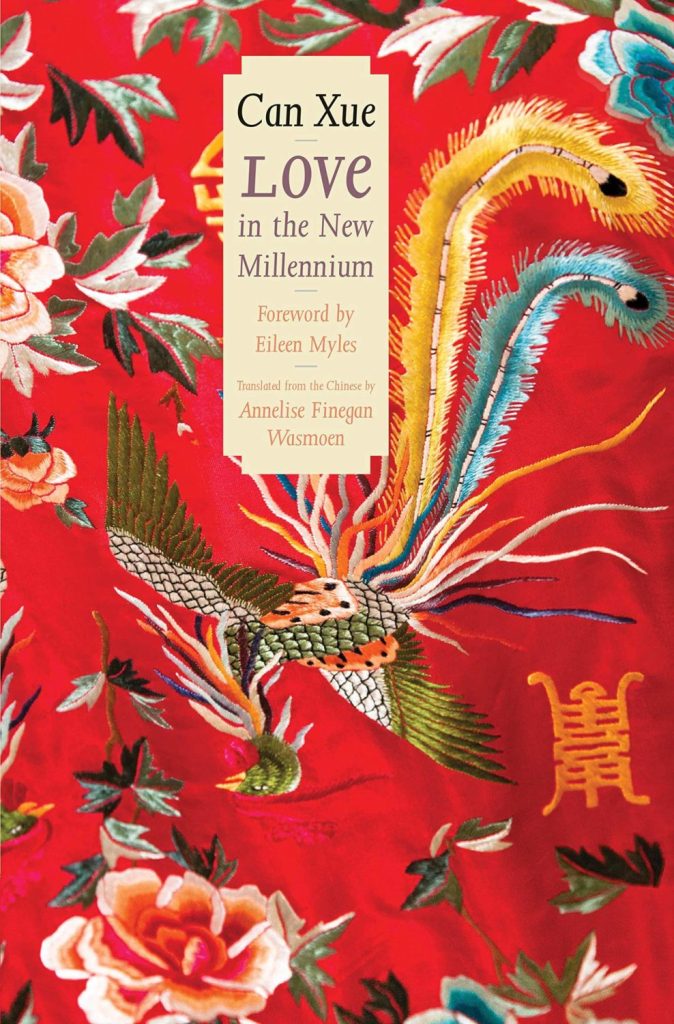
Paranoia and mistrust characterize Wei Bo’s love affair with the widow Cuilan. She, too, is wavering in her feelings. For her ideal of love is that it should be as fleeting as the morning dew.
They met in a wellness hotel that also offers other services. Bo wonders if he should break up with Cuilan because he feels as close to her as he only does to his wife. Their relationship is in constant flux. When she finally decides to give him a real chance, he unexpectedly has to go to jail.
Shedding light on all facets of love, Can Xue describes the lives of four women who revolve around the male protagonist Wei Bo. Their everyday lives are marked by existential questions and fears. All of them are constantly under (mutual) observation. The wellness hotel becomes a place of refuge to escape the numerous conspiracies and social pressures. Traditional Chinese healing herbs also play a role in Can Xue’s novel. They are supposed to point the way to a new self and true happiness.
“If China has one possibility of a Nobel laureate, it is Can Xue,” the writer Susan Sontag once said. Can Xue is considered one of the most influential authors of our time. Born in Changsha in 1953, she has lived in Beijing for twenty years and has managed to make a name for herself in the world as one of the few women in the Chinese literary and avant-garde scene.
Love in the New Millennium (The Margellos World Republic of Letters)
新世纪爱情故事 (Chinese)
Can Xue
Yale University Press
288 pages
ISBN-13: 978-0300224313
$25, also available as ebook
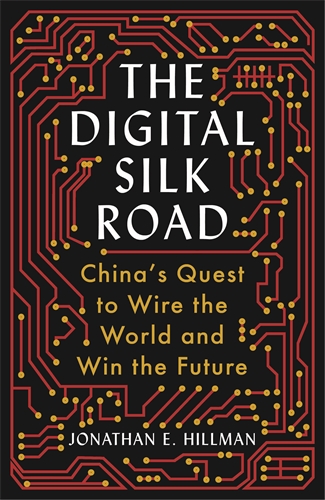
Be it 5G, smart cities, or the Great Firewall – China has also caused a stir in the digital space in recent years. Digital infrastructure and tech products have become export hits like airports, roads, and ports. But is China building a digital Silk Road? The new book by Jonathan Hillman, director of the Reconnecting Asia Project at the Center for Strategic and International Studies, suggests this with the book’s title (The Digital Silk Road – China’s Quest to Wire the World and Win the Future). After about 350 pages, the reader learned many exciting details of China’s digital rise. But his picture of a digital Silk Road and its implications often remains vague.
Hillman’s book starts very informatively. After an introduction about the (mis)belief of Western leaders that information technology will advance freedom around the world, the author jumps right into the material. In two strong chapters, he describes the rise of Huawei as a global digital corporation and the omnipresent CCTV surveillance in China’s cities.
In great detail, Hillman explains the mix of state capitalism, Western corporate naïveté, and the brazenness of Huawei’s executives that contributed to the group’s rise. It is a mix that exemplifies the rise of many of China’s tech companies. Western companies, in turn, were willing to share their technologies with Huawei in exchange for market access to China. Meanwhile, according to Hillman, Huawei did not shy away from industrial espionage and copied the technology of foreign companies. The copying had gone so far that even the typos in user manuals for Cisco products were repeated.
But Huawei also used legal practices. The company was advised by IBM for 17 years and learned important management practices that helped it become a global corporation. In recent years, Huawei and other Chinese tech companies have primarily strived to enter markets that have been almost completely neglected by Western competitors. According to Hillman, Huawei has built a good 70 percent of the 4G network in African countries this way.
In the following chapter, Hillman describes the extent of technological surveillance in China. Today, the People’s Republic is the largest exporter of surveillance cameras. But Hillman remains sober in his remarks and does not exaggerate the situation. He points out the flaws of the system. For example, there is now so much footage from China’s cities that they can hardly be evaluated. Artificial intelligence is not yet capable of doing this. When it comes to exporting technology for smart cities, for example, China promises more than it can deliver, according to Hillman.
The People’s Republic is often accused of exporting an “authoritarian style of leadership” with its CCTV surveillance. But this assumption is too simplistic, says Hillman. Technology is merely a tool. It depends on the local conditions, how it is used, and whether it is even capable of the level of monitoring that the manufacturers advertise.
After these two chapters, the reader is delighted to hold a sequel to Hillman’s “Emperor’s New Road” in his hands (China.Table reported). In this book, published in 2020, Hillman describes the Chinese Silk Road Initiative: Myths surrounding the infrastructure project and problems faced by China and its partners in building its numerous infrastructure projects.
But over the next chapters, the author of “The Digital Silk Road” unfortunately gets lost in the details and the subjunctive. He rarely manages to bridge the gap between individual topics and the digital Silk Road
One example is Hillman’s description of how China has gained a foothold in building undersea cables to connect the world. The cables “outline a China-centric global network that did not exist a decade ago,” the author writes. China, he says, is not yet on par with developed countries. However, Hillman fails to explain the problems associated with this network.
The penultimate chapter of the book then unfortunately frays completely. Hillman describes how China sells communication satellites to other countries, including launching them into space. This often leads to an increase in debt levels, without any substantial economic benefit for these countries. Then, however, Hillman loses himself in a page-long description of so-called LEO satellites (Low Earth Orbit), which are also offered by SpaceX. China is not yet competitive here, Hillman writes. But he remains very vague and lapses into speculation: The People’s Republic could look at which companies are successful with what services and simply copy them.
Hillman also describes China’s efforts to build more overseas data centers very superficially. He does not mention any of the concrete dangers involved. It also remains unclear whether China will be able to catch up with the current cloud market leaders Amazon, Microsoft, and Google.
And so “The Digital Silk Road” unfortunately falls short of its predecessor regarding the actual New Silk Road. The “Emperor’s New Road” gave readers a good overview of the mammoth project – with all its problems for the partner countries, but also for China itself. The new book, on the other hand, contains a lot of interesting detailed information at times. But it lacks the larger context, explanations, and a common thread. The reader gets no impression of whether the “Digital Silk Road” really exists – or whether it is merely a clever book title.
The Digital Silk Road: China’s Quest to Wire the World and Win the Future
Jonathan E. Hillman
Harper Business
368 pages
ISBN-13: 978-0063046283
$29.99 (hardcover)
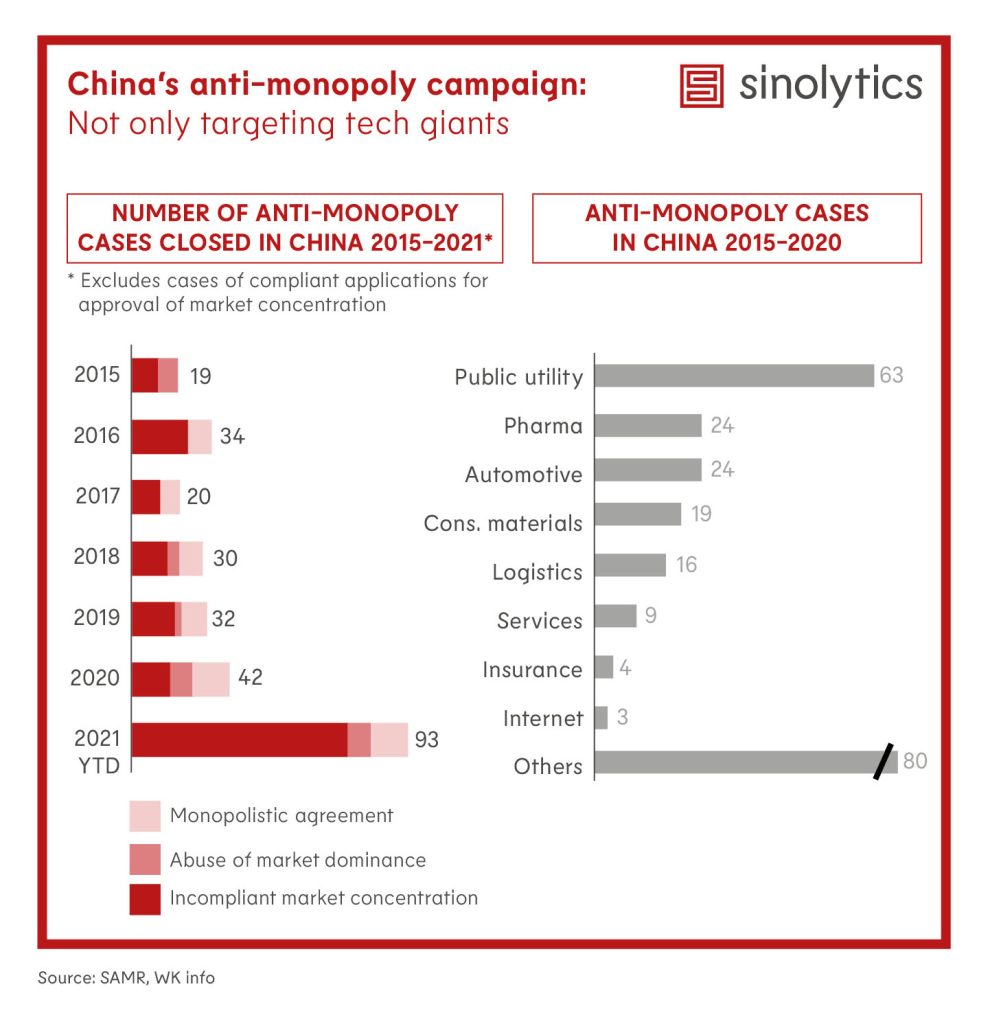
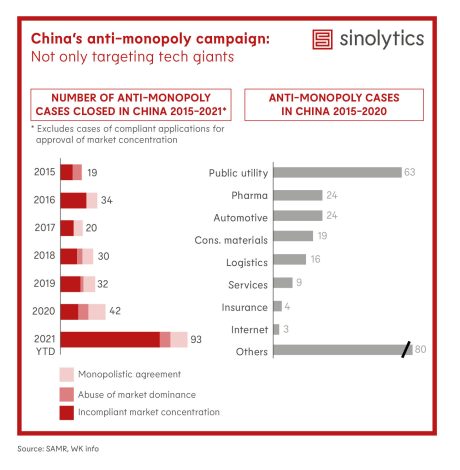
Sinolytics is a European consulting and analysis company that focuses entirely on China. It advises European companies on their strategic orientation and concrete business activities in China.
The veto powers China and Russia have rejected “humanitarian exceptions” on a case-by-case basis in the UN Security Council’s sanctions regime against the radical Islamic Taliban. The stumbling block for Beijing and Moscow was a paragraph in the draft resolution tabled by the US, reports AFP, citing diplomats. This paragraph should allow the committee responsible for the Afghanistan sanctions to decide on exceptions to the financial sanctions against the Taliban if necessary. China is “opposed in principle to sanctions” and thus also against mechanisms that allow exceptions in individual cases, writes AFP.
The US has already submitted an amended draft, which is to be adopted on Tuesday. It now states that humanitarian aid will in principle not be considered a violation of the sanctions against Afghanistan for a period of one year. This draft is regarded as a transitional arrangement.
The UN sanctions against the Taliban have been in place since 2015. These have extended to the whole of Afghanistan since the radical Islamists took power in August. The country is in a severe economic and humanitarian crisis and is heavily dependent on foreign aid. However, aid shipments have been cut back sharply since August. The UN has therefore repeatedly warned of a humanitarian catastrophe in the country. ck
As expected for some time now, German Chancellor Olaf Scholz and Chinese President Xi Jinping held a phone conference. According to official statements, both pleaded for deeper cooperation during their talk on Tuesday. Xi also argued that regional problems should be solved through dialogue and that a “Cold War mentality” should be firmly rejected, according to a report by Chinese state broadcaster CCTV. It is the usual tone that China uses to solicit a cooperative attitude from the EU and Germany. Immediately after the new government took office, Beijing had already called for stable relations – especially given the more critical stance of the new Foreign Minister Annalena Baerbock, for example.
The German government issued only a very brief statement on the phone call. Government spokesman Steffen Hebestreit named a few of the topics: In addition to deepening the bilateral partnership and economic relations, they had talked about the development of EU-China relations as well as “international issues”. At first glance, that is not particularly meaningful.
Meanwhile, according to CCTV, Xi called for cooperation in new energies and the digital economy. German companies are welcome to seize the opportunities that arise from China’s opening. Conversely, Xi expressed the hope that Germany would offer a fair business environment for Chinese companies that seek to invest in Germany. rtr/ck
China has connected a fourth-generation nuclear reactor to the power grid for the first time. This makes the high-temperature gas-cooled reactor (HTGR) at the Shidaowan nuclear power plant in the province of Shandong currently the only one of its kind in commercial operation worldwide. The reactor was developed and built by the state-owned power giants China Huaneng Group and China National Nuclear Corporation (CNNC) together with Beijing Tsinghua University. It consists of two small turbine units with a total capacity of 200 megawatts (MW). The second unit is still under construction and is expected to be brought online in mid-2022, according to China Huaneng Group.
According to Huaneng, the new HTGR is based on German technology but was developed entirely in China. The degree of localization is 93.4 percent. Construction of the two turbines began back in 2012. However, completion was delayed. HTGR reactors have long been considered the safest form of nuclear power. But the only four reactors of this type ever used commercially in the US and Germany were abandoned due to operational problems.
As an emission-free form of power, nuclear energy plays a far greater role in China’s energy transition than in many Western countries. That is why China is working flat out to develop its own reactors. It was just over a year ago that the first third-generation reactor was connected to the grid at the Fuqing nuclear power plant: a pressurized water reactor called Hualong One HPR-1000 with a capacity of 1,150 megawatts (China.Table reported). Several additional reactors of this type have since been installed or are still under construction. China is also experimenting with nuclear fusion.
With 51 gigawatts (GW) of installed capacity (end of 2020), China is the third-largest producer of nuclear power after the USA and France. Another 18.5 GW is still under construction. In its five-year plan for 2021 to 2025, Beijing plans to promote and install third-generation reactors. In total, capacity is to rise to 70 GW by the end of 2025. So far, however, nuclear power accounts for only about five percent of the electricity mix. ck
Former Hong Kong politicians interpret the low turnout in the general election as a clear rejection by citizens of the growing authoritarian influence of the People’s Republic of China. In an interview with China.Table, activist Sunny Cheung said he considered the absence of many voters to be a clear message that they considered the ballot to be a sham. Thus, they had refused to recognize it. “Although Beijing has declared electoral reform for Hong Kong an inevitable means to ensure stability and prosperity, Hong Kong’s people last Sunday ensured the lowest voter turnout in history as a way to express their discontent to the world,” Cheung said. He had himself run for the Legislative Council in June 2020 as a candidate from the pro-democracy camp. Later that year, however, he fled to avoid arrest in Hong Kong. The election took place only now – under entirely different conditions.
Voter turnout on Sunday had been at a historic low of around 30 percent. The electoral law, which was passed by the National People’s Congress in Beijing in the spring, had drastically reduced the proportion of freely electable parliamentarians. Only 20 of the 90 deputies in the Legislative Council were now directly elected. Another 40 were chosen by an election committee loyal to Beijing. The rest is picked from interest groups close to China’s central government. All 153 candidates were also vetted for their “patriotism” and political loyalty to Beijing before the election (China.Table reported).
“Hong Kong people were aware that they would not be represented by genuine democrats in this election. That’s why they refused to play along with this script just to provide good entertainment in Beijing,” Cheung said. “There is no autonomy and no legitimacy in this fake legislature.” The 25-year-old calls the new parliament a collection of political puppets and yes-men. He had already been politically active in Hong Kong since the 2014 umbrella protests. Cheung now lives in the US, where he lobbies for the preservation of free civil rights in Hong Kong.
Speaking to China.Table, former parliamentarian Ted Hui also stressed the lack of credibility of the future Legislative Council. “The low turnout is a clear message from the people: The election is irrelevant and illegitimate in their eyes. The majority refused to give this parliament any validity.” Hui also fled Hong Kong and now lives in Australia (China.Table reported). grz
The number of apps in Chinese app stores has declined by 38.5 percent in the last three years. This is shown by figures from the Chinese Ministry of Industry and Information Technology (MIIT). According to the figures, around 4.52 million apps were still available for download at the end of 2018. By October 2021, the number had shrunk to 2.78 million.
Market observers attributed this decline to a consolidation of the app market and stricter internet regulation by the government. Video games are particularly affected, according to a report in the South China Morning Post. In August, the provincial press and publications administration had issued a new rule restricting gaming time for users under 18 to certain days of the week and time slots. Chinese regulators have also not approved any new online games for sale since July 2021. fpe
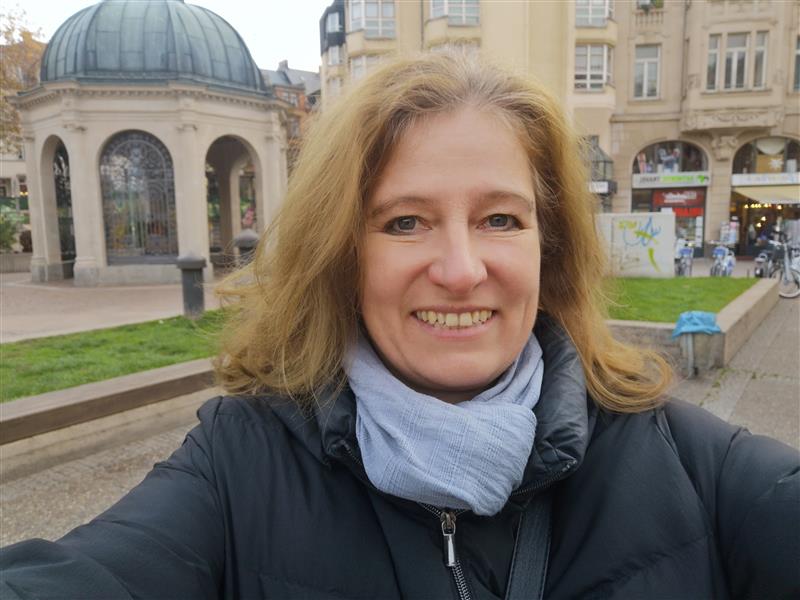
When Françoise Hauser had just earned her Master’s degree in Sinology in the mid-1990s, a visit to the employment office recommended she choose a different career path. “Back then, there wasn’t much anyone could do with Chinese,” says the writer, who was born in Mainz in 1967. After a brief but profound interlude at a computer company, she finally ended up back in China. Fortunately, the well-traveled author and journalist has since put her expertise to good use in more than 30 books. A good third of these works are about China.
In one of them, she humorously dispels “20 popular misconceptions about China,” such as the idea that Chinese eat rice every day or even dogs and cats. In the travel guide “Culinary Chinese” she explains how to decipher a Chinese menu “word for word”. In her “Instruction manual for Chinese,” Hauser deepens her introduction to “the most widely spoken language in the world.” Along the way, she answers basic questions – starting with: “How do you really get started with the language?” The book is still highly popular with Chinese learners today: the volume, which was published by Reclam in 2015, has been reprinted several times.
Hauser herself studied Chinese in Taiwan and Nanjing in eastern China, among other places. “When I studied in Nanjing in 1989, there were just three high-rise buildings there,” she recalls. “Today, like almost everywhere else, there’s a skyline.”
When Hauser talks about China, she bubbles over with anecdotes. Like the one about how she once wanted to eat shuǐjiǎo (水饺), Chinese dumplings. The taxi driver drove her to a hotel outside the city, thinking she needed to take a nap – shuìjiào (睡觉). “Everyone who learns Chinese has had such experiences: When you’re a foreigner, and you don’t hit the notes right, you get something completely different than what you wanted,” she says.
And of course, there are also the many subtle cultural differences that you have to bridge again and again when dealing with the Chinese. Hauser is an expert at this. After university, she applied to a Chinese travel agency. The boss, obsessed with Feng Shui, asked her only one question during the interview: “What’s your Chinese zodiac sign?” “Goat,” Hauser replied, and got the job.
The author wrote about some of her experiences in the self-deprecating book “Around the world in 80 blunders”, which was published by National Geographic in 2014. For several years now, she has also been passing on her knowledge in intercultural preparatory courses, for example at universities and for companies. “I always wanted to spark an interest in China in people that goes beyond economics and politics,” she says. “There is always a lot of criticism of China in our country. But Chinese culture and China’s CP are not identical.” The country would be difficult to boil down to simple formulas.
On the other hand, we could also learn a thing or two from the Chinese, says Hauser. “We Germans, for example, often talk first and then stop and look. This order is typically reversed in China: First, you look, then you survey the situation, and then you talk. That’s more promising.” Although the book author has long felt at home in other Asian countries such as Japan and Malaysia, China has never let her go. Before Covid, she tried to visit the country at least once a year.
Hauser still agrees with the commonplace belief that “China is different,” despite her years of experience. “I’ll never know everything about China, and I think that’s great.” Accordingly, she thinks little of the coffee-table talk that many China experts feel compelled to engage in: “If all the prophecies had come true, China would have already collapsed three times and conquered the world three times.” Hauser approaches the country with an alternative approach: “I’ve decided to let myself be surprised again and again. And the thing is, even the Chinese don’t always understand their own country.” Fabian Peltsch
Uzra Zeya will be the new US Special Coordinator for Tibetan Issues. Appointed by US President Joe Biden, the diplomat with Indian roots has served the US government for 27 years. In her new post, Zeya aims to advocate for the “human rights and fundamental freedoms” of Tibetans and promote a “substantive dialogue” between the Dalai Lama and Beijing. The post of US Tibet coordinator was created in 2002. The Chinese embassy in Washington criticized Zeya’s appointment as “political manipulation” and an attempt to “destabilize Tibet.”
Pradeep Kumar Rawat was confirmed as India’s new ambassador to China on Monday. The veteran diplomat is fluent in Mandarin. Most recently, Rawat was ambassador to the Netherlands. He was deputy chief of the Indian embassy in Beijing between 2003 and 2007, and director for China in the East Asia department from 2007 to 2009. Rawat succeeds Vikram Misri, who had taken up the post in September 2018.
Li Henan becomes the new head of crude oil trading at Chinaoil, the Singapore trading arm of Chinese oil giant PetroChina. The company buys crude oil for the group’s refinery there. It also trades crude oil from the Middle East, Russia, and the Asia-Pacific region. Li succeeds Zhang Yufeng.
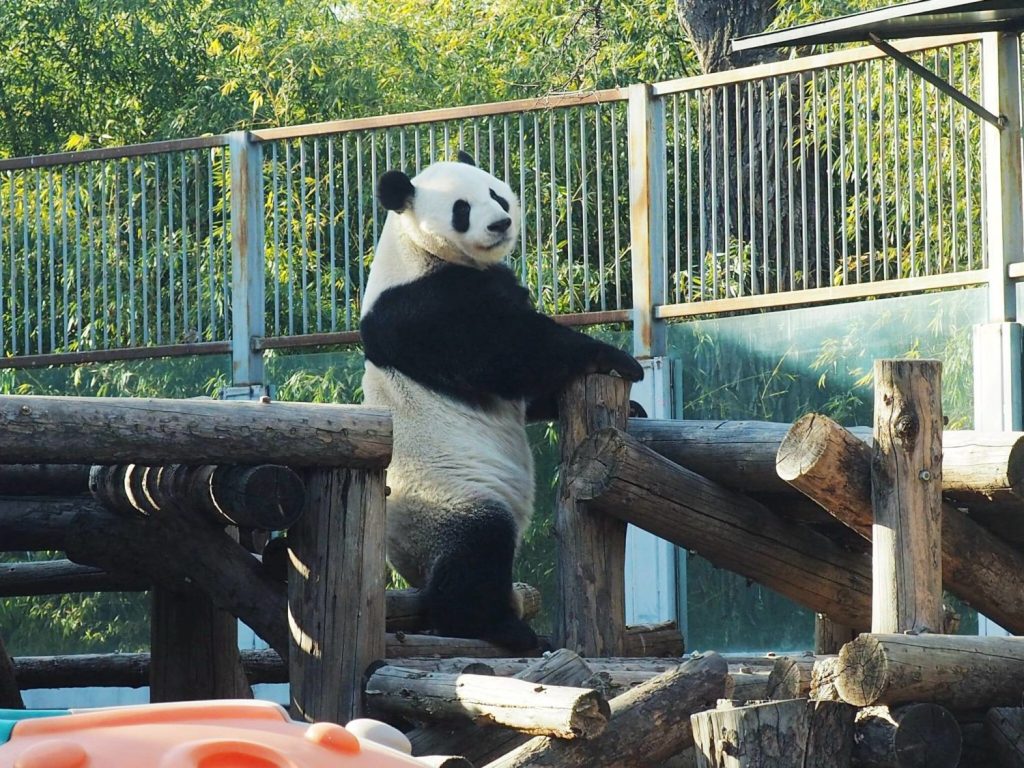
“I’m a Celebrity…Get Me Out of Here!”, Meng Lan seems to be saying to the camera. The giant panda had escaped from his enclosure at Beijing Zoo on December 15 and was placed behind an extra-high security fence ever since. It was already the second escape attempt of the six-year-old animal. Zookeepers were able to lure him back with food.
In China, people like to celebrate holidays “renao 热闹” – “warm and loud”. With a little luck, however, the Christmas season also offers a few quiet hours there, which can be spent with a good book, for example. Ning Wang has taken a look at the most important and exciting new publications on and from China this winter. It includes everything, from an in-depth look at the country’s recent history to bizarre insights into the party’s cronyism.
Nico Beckert reviews a piece on digital global conquest strategies by political scientist Jonathan Hillman – and cannot give a wholehearted recommendation. Our book special concludes with a profile of the author and cultural mediator Françoise Hauser, who, despite her extensive China expertise, says: “I’ll never know everything about China, and I think that’s great.”
Of course, our Briefings also keep you up to date on the latest news and developments. Because what is currently happening in China and Hong Kong could fill another thousand books.


Klaus Muehlhahn’s book explores China’s rise throughout history, from the Qing dynasty to Xi Jinping’s modern China. The sinologist and cultural scientist has also set a focus on China’s institutions that helped shaped the country. How have these institutions changed China? What impact had their influence on the lives of the Chinese people? These are the central questions that run like a thread through the 730-page mammoth project.
Muehlhahn helps the reader understand the story of China through its long history by highlighting its great achievements and also its setbacks on its way to becoming the economic superpower of today.
Making China Modern: From the Great Qing to Xi Jinping
Klaus Muehlhahn
Belknap Press: An Imprint of Harvard University Press; Reprint edition
736 pages
ISBN-13: 978-0674737358
€36.00 (hardcover), also available as ebook

Shortly before his book “Red Roulette” was published this fall, Desmond Shum received two phone calls from his ex-wife Whitney, who was thought to have disappeared up to this point. Shum hadn’t heard from her in four years. She had not returned home from her well-secured, marble-adorned Beijing office on September 5, 2017, Shum recounts. And now she was suddenly pleading with him from the other end of the line to cancel the book’s publication at the last minute. Yet Shum had also written the book to explain to their son where his mother might be and how she suddenly disappeared without a trace one day.
Whitney Duan (a.k.a. Duan Weihong) was well-connected as a businesswoman to the highest circles of the Communist Party for years. The wife of then-Premier Wen Jiabao called her simply “Auntie Zhang”.
A central aspect of Shum’s memoirs about his ex-wife’s business relations with Zhongnanhai’s CP elite is the IPO of Ping An, one of the largest insurers in the country, in 2004. Wen Jiabao’s relatives reportedly had invested in Ping An before the IPO. Shum writes about the corruption within the party not as an outsider, but as someone who has accompanied the business dealings of the “red aristocracy” and made a profit in the process. His book paints a fascinating picture of how China’s elite used money, power, and caprice to consolidate and expand its position in the 1990s.
Red Roulette – An Insider’s Story of Wealth, Power, Corruption, and Vengeance in Today’s China
Desmond Shum
Scribner Book Company
320 pages
ISBN-13: 978-1982156152
$30

Ai Wei Wei has written a book for his son. It is supposed to give an insight into Ai’s life – probably also because the artist himself could hardly ever speak openly with his father about his past. Thus, the book is also a tribute to Ai Wei Wei’s father Ai Qing, who was a well-known poet in China during his lifetime. When Ai talks about his father, he does so primarily by incorporating his poems and mixing fiction with his memories.
As a ten-year-old during the Cultural Revolution, Ai had lived with his father for over a year in a cave in the region of Xinjiang. For his criticism of Mao Zedong, Ai Qing was sent to the countryside, where he had to clean toilets. It was not until 1979 that he was rehabilitated and was once again allowed to publish his works. His father’s steadfastness left a deep impression on him back then, writes Ai Wei Wei, who himself had to spend 81 days in solitary confinement. On April 3, 2011, plainclothes police officers had arrested him at Beijing airport and prevented him from leaving the country. His son was just two years old at the time.
“During my own period of secret detention, I felt the need to reconsider my relationship with my father, and I decided to write an account of his life and mine and share it with my son, Ai Lao,” Ai Wei Wei says, explaining his motivations for writing the book.
1000 Years of Joys and Sorrows: A Memoir
Ai Wei Wei
Crown
400 pages
ISBN-13 : 978-0553419467
€28,99, also available as ebook

Contrary to its title, this book is not a collection of statistics and data on China. Rather, US journalist Te-Ping Chen has compiled short stories inspired by her work as a correspondent in China for Wall Street Journal.
Chen describes the living conditions of the Chinese people in a complex and diverse way, interweaving the plot with current social developments. The Internet, for example, is one of the key themes in a story about a pair of twins. While her brother rises to prosperity through the Internet by designing online video games, it becomes more and more of a threat to his sister. Unlike her brother, she has worked hard in school and earned good grades, but she speaks out critically on an online forum. For her comments about injustice, she eventually ends up in jail. In the end, the twins’ father wonders which of the two did the right thing and what really matters in a rapidly changing society – questions that also haunt readers in the West.
Land of Big Numbers
Te-Ping Chen
Mariner Books
236 pages, One of Barack Obama’s Summer Reading Picks
ISBN-13: 978-0358272557
$15,99, also available as ebook and audiobook

Paranoia and mistrust characterize Wei Bo’s love affair with the widow Cuilan. She, too, is wavering in her feelings. For her ideal of love is that it should be as fleeting as the morning dew.
They met in a wellness hotel that also offers other services. Bo wonders if he should break up with Cuilan because he feels as close to her as he only does to his wife. Their relationship is in constant flux. When she finally decides to give him a real chance, he unexpectedly has to go to jail.
Shedding light on all facets of love, Can Xue describes the lives of four women who revolve around the male protagonist Wei Bo. Their everyday lives are marked by existential questions and fears. All of them are constantly under (mutual) observation. The wellness hotel becomes a place of refuge to escape the numerous conspiracies and social pressures. Traditional Chinese healing herbs also play a role in Can Xue’s novel. They are supposed to point the way to a new self and true happiness.
“If China has one possibility of a Nobel laureate, it is Can Xue,” the writer Susan Sontag once said. Can Xue is considered one of the most influential authors of our time. Born in Changsha in 1953, she has lived in Beijing for twenty years and has managed to make a name for herself in the world as one of the few women in the Chinese literary and avant-garde scene.
Love in the New Millennium (The Margellos World Republic of Letters)
新世纪爱情故事 (Chinese)
Can Xue
Yale University Press
288 pages
ISBN-13: 978-0300224313
$25, also available as ebook

Be it 5G, smart cities, or the Great Firewall – China has also caused a stir in the digital space in recent years. Digital infrastructure and tech products have become export hits like airports, roads, and ports. But is China building a digital Silk Road? The new book by Jonathan Hillman, director of the Reconnecting Asia Project at the Center for Strategic and International Studies, suggests this with the book’s title (The Digital Silk Road – China’s Quest to Wire the World and Win the Future). After about 350 pages, the reader learned many exciting details of China’s digital rise. But his picture of a digital Silk Road and its implications often remains vague.
Hillman’s book starts very informatively. After an introduction about the (mis)belief of Western leaders that information technology will advance freedom around the world, the author jumps right into the material. In two strong chapters, he describes the rise of Huawei as a global digital corporation and the omnipresent CCTV surveillance in China’s cities.
In great detail, Hillman explains the mix of state capitalism, Western corporate naïveté, and the brazenness of Huawei’s executives that contributed to the group’s rise. It is a mix that exemplifies the rise of many of China’s tech companies. Western companies, in turn, were willing to share their technologies with Huawei in exchange for market access to China. Meanwhile, according to Hillman, Huawei did not shy away from industrial espionage and copied the technology of foreign companies. The copying had gone so far that even the typos in user manuals for Cisco products were repeated.
But Huawei also used legal practices. The company was advised by IBM for 17 years and learned important management practices that helped it become a global corporation. In recent years, Huawei and other Chinese tech companies have primarily strived to enter markets that have been almost completely neglected by Western competitors. According to Hillman, Huawei has built a good 70 percent of the 4G network in African countries this way.
In the following chapter, Hillman describes the extent of technological surveillance in China. Today, the People’s Republic is the largest exporter of surveillance cameras. But Hillman remains sober in his remarks and does not exaggerate the situation. He points out the flaws of the system. For example, there is now so much footage from China’s cities that they can hardly be evaluated. Artificial intelligence is not yet capable of doing this. When it comes to exporting technology for smart cities, for example, China promises more than it can deliver, according to Hillman.
The People’s Republic is often accused of exporting an “authoritarian style of leadership” with its CCTV surveillance. But this assumption is too simplistic, says Hillman. Technology is merely a tool. It depends on the local conditions, how it is used, and whether it is even capable of the level of monitoring that the manufacturers advertise.
After these two chapters, the reader is delighted to hold a sequel to Hillman’s “Emperor’s New Road” in his hands (China.Table reported). In this book, published in 2020, Hillman describes the Chinese Silk Road Initiative: Myths surrounding the infrastructure project and problems faced by China and its partners in building its numerous infrastructure projects.
But over the next chapters, the author of “The Digital Silk Road” unfortunately gets lost in the details and the subjunctive. He rarely manages to bridge the gap between individual topics and the digital Silk Road
One example is Hillman’s description of how China has gained a foothold in building undersea cables to connect the world. The cables “outline a China-centric global network that did not exist a decade ago,” the author writes. China, he says, is not yet on par with developed countries. However, Hillman fails to explain the problems associated with this network.
The penultimate chapter of the book then unfortunately frays completely. Hillman describes how China sells communication satellites to other countries, including launching them into space. This often leads to an increase in debt levels, without any substantial economic benefit for these countries. Then, however, Hillman loses himself in a page-long description of so-called LEO satellites (Low Earth Orbit), which are also offered by SpaceX. China is not yet competitive here, Hillman writes. But he remains very vague and lapses into speculation: The People’s Republic could look at which companies are successful with what services and simply copy them.
Hillman also describes China’s efforts to build more overseas data centers very superficially. He does not mention any of the concrete dangers involved. It also remains unclear whether China will be able to catch up with the current cloud market leaders Amazon, Microsoft, and Google.
And so “The Digital Silk Road” unfortunately falls short of its predecessor regarding the actual New Silk Road. The “Emperor’s New Road” gave readers a good overview of the mammoth project – with all its problems for the partner countries, but also for China itself. The new book, on the other hand, contains a lot of interesting detailed information at times. But it lacks the larger context, explanations, and a common thread. The reader gets no impression of whether the “Digital Silk Road” really exists – or whether it is merely a clever book title.
The Digital Silk Road: China’s Quest to Wire the World and Win the Future
Jonathan E. Hillman
Harper Business
368 pages
ISBN-13: 978-0063046283
$29.99 (hardcover)


Sinolytics is a European consulting and analysis company that focuses entirely on China. It advises European companies on their strategic orientation and concrete business activities in China.
The veto powers China and Russia have rejected “humanitarian exceptions” on a case-by-case basis in the UN Security Council’s sanctions regime against the radical Islamic Taliban. The stumbling block for Beijing and Moscow was a paragraph in the draft resolution tabled by the US, reports AFP, citing diplomats. This paragraph should allow the committee responsible for the Afghanistan sanctions to decide on exceptions to the financial sanctions against the Taliban if necessary. China is “opposed in principle to sanctions” and thus also against mechanisms that allow exceptions in individual cases, writes AFP.
The US has already submitted an amended draft, which is to be adopted on Tuesday. It now states that humanitarian aid will in principle not be considered a violation of the sanctions against Afghanistan for a period of one year. This draft is regarded as a transitional arrangement.
The UN sanctions against the Taliban have been in place since 2015. These have extended to the whole of Afghanistan since the radical Islamists took power in August. The country is in a severe economic and humanitarian crisis and is heavily dependent on foreign aid. However, aid shipments have been cut back sharply since August. The UN has therefore repeatedly warned of a humanitarian catastrophe in the country. ck
As expected for some time now, German Chancellor Olaf Scholz and Chinese President Xi Jinping held a phone conference. According to official statements, both pleaded for deeper cooperation during their talk on Tuesday. Xi also argued that regional problems should be solved through dialogue and that a “Cold War mentality” should be firmly rejected, according to a report by Chinese state broadcaster CCTV. It is the usual tone that China uses to solicit a cooperative attitude from the EU and Germany. Immediately after the new government took office, Beijing had already called for stable relations – especially given the more critical stance of the new Foreign Minister Annalena Baerbock, for example.
The German government issued only a very brief statement on the phone call. Government spokesman Steffen Hebestreit named a few of the topics: In addition to deepening the bilateral partnership and economic relations, they had talked about the development of EU-China relations as well as “international issues”. At first glance, that is not particularly meaningful.
Meanwhile, according to CCTV, Xi called for cooperation in new energies and the digital economy. German companies are welcome to seize the opportunities that arise from China’s opening. Conversely, Xi expressed the hope that Germany would offer a fair business environment for Chinese companies that seek to invest in Germany. rtr/ck
China has connected a fourth-generation nuclear reactor to the power grid for the first time. This makes the high-temperature gas-cooled reactor (HTGR) at the Shidaowan nuclear power plant in the province of Shandong currently the only one of its kind in commercial operation worldwide. The reactor was developed and built by the state-owned power giants China Huaneng Group and China National Nuclear Corporation (CNNC) together with Beijing Tsinghua University. It consists of two small turbine units with a total capacity of 200 megawatts (MW). The second unit is still under construction and is expected to be brought online in mid-2022, according to China Huaneng Group.
According to Huaneng, the new HTGR is based on German technology but was developed entirely in China. The degree of localization is 93.4 percent. Construction of the two turbines began back in 2012. However, completion was delayed. HTGR reactors have long been considered the safest form of nuclear power. But the only four reactors of this type ever used commercially in the US and Germany were abandoned due to operational problems.
As an emission-free form of power, nuclear energy plays a far greater role in China’s energy transition than in many Western countries. That is why China is working flat out to develop its own reactors. It was just over a year ago that the first third-generation reactor was connected to the grid at the Fuqing nuclear power plant: a pressurized water reactor called Hualong One HPR-1000 with a capacity of 1,150 megawatts (China.Table reported). Several additional reactors of this type have since been installed or are still under construction. China is also experimenting with nuclear fusion.
With 51 gigawatts (GW) of installed capacity (end of 2020), China is the third-largest producer of nuclear power after the USA and France. Another 18.5 GW is still under construction. In its five-year plan for 2021 to 2025, Beijing plans to promote and install third-generation reactors. In total, capacity is to rise to 70 GW by the end of 2025. So far, however, nuclear power accounts for only about five percent of the electricity mix. ck
Former Hong Kong politicians interpret the low turnout in the general election as a clear rejection by citizens of the growing authoritarian influence of the People’s Republic of China. In an interview with China.Table, activist Sunny Cheung said he considered the absence of many voters to be a clear message that they considered the ballot to be a sham. Thus, they had refused to recognize it. “Although Beijing has declared electoral reform for Hong Kong an inevitable means to ensure stability and prosperity, Hong Kong’s people last Sunday ensured the lowest voter turnout in history as a way to express their discontent to the world,” Cheung said. He had himself run for the Legislative Council in June 2020 as a candidate from the pro-democracy camp. Later that year, however, he fled to avoid arrest in Hong Kong. The election took place only now – under entirely different conditions.
Voter turnout on Sunday had been at a historic low of around 30 percent. The electoral law, which was passed by the National People’s Congress in Beijing in the spring, had drastically reduced the proportion of freely electable parliamentarians. Only 20 of the 90 deputies in the Legislative Council were now directly elected. Another 40 were chosen by an election committee loyal to Beijing. The rest is picked from interest groups close to China’s central government. All 153 candidates were also vetted for their “patriotism” and political loyalty to Beijing before the election (China.Table reported).
“Hong Kong people were aware that they would not be represented by genuine democrats in this election. That’s why they refused to play along with this script just to provide good entertainment in Beijing,” Cheung said. “There is no autonomy and no legitimacy in this fake legislature.” The 25-year-old calls the new parliament a collection of political puppets and yes-men. He had already been politically active in Hong Kong since the 2014 umbrella protests. Cheung now lives in the US, where he lobbies for the preservation of free civil rights in Hong Kong.
Speaking to China.Table, former parliamentarian Ted Hui also stressed the lack of credibility of the future Legislative Council. “The low turnout is a clear message from the people: The election is irrelevant and illegitimate in their eyes. The majority refused to give this parliament any validity.” Hui also fled Hong Kong and now lives in Australia (China.Table reported). grz
The number of apps in Chinese app stores has declined by 38.5 percent in the last three years. This is shown by figures from the Chinese Ministry of Industry and Information Technology (MIIT). According to the figures, around 4.52 million apps were still available for download at the end of 2018. By October 2021, the number had shrunk to 2.78 million.
Market observers attributed this decline to a consolidation of the app market and stricter internet regulation by the government. Video games are particularly affected, according to a report in the South China Morning Post. In August, the provincial press and publications administration had issued a new rule restricting gaming time for users under 18 to certain days of the week and time slots. Chinese regulators have also not approved any new online games for sale since July 2021. fpe

When Françoise Hauser had just earned her Master’s degree in Sinology in the mid-1990s, a visit to the employment office recommended she choose a different career path. “Back then, there wasn’t much anyone could do with Chinese,” says the writer, who was born in Mainz in 1967. After a brief but profound interlude at a computer company, she finally ended up back in China. Fortunately, the well-traveled author and journalist has since put her expertise to good use in more than 30 books. A good third of these works are about China.
In one of them, she humorously dispels “20 popular misconceptions about China,” such as the idea that Chinese eat rice every day or even dogs and cats. In the travel guide “Culinary Chinese” she explains how to decipher a Chinese menu “word for word”. In her “Instruction manual for Chinese,” Hauser deepens her introduction to “the most widely spoken language in the world.” Along the way, she answers basic questions – starting with: “How do you really get started with the language?” The book is still highly popular with Chinese learners today: the volume, which was published by Reclam in 2015, has been reprinted several times.
Hauser herself studied Chinese in Taiwan and Nanjing in eastern China, among other places. “When I studied in Nanjing in 1989, there were just three high-rise buildings there,” she recalls. “Today, like almost everywhere else, there’s a skyline.”
When Hauser talks about China, she bubbles over with anecdotes. Like the one about how she once wanted to eat shuǐjiǎo (水饺), Chinese dumplings. The taxi driver drove her to a hotel outside the city, thinking she needed to take a nap – shuìjiào (睡觉). “Everyone who learns Chinese has had such experiences: When you’re a foreigner, and you don’t hit the notes right, you get something completely different than what you wanted,” she says.
And of course, there are also the many subtle cultural differences that you have to bridge again and again when dealing with the Chinese. Hauser is an expert at this. After university, she applied to a Chinese travel agency. The boss, obsessed with Feng Shui, asked her only one question during the interview: “What’s your Chinese zodiac sign?” “Goat,” Hauser replied, and got the job.
The author wrote about some of her experiences in the self-deprecating book “Around the world in 80 blunders”, which was published by National Geographic in 2014. For several years now, she has also been passing on her knowledge in intercultural preparatory courses, for example at universities and for companies. “I always wanted to spark an interest in China in people that goes beyond economics and politics,” she says. “There is always a lot of criticism of China in our country. But Chinese culture and China’s CP are not identical.” The country would be difficult to boil down to simple formulas.
On the other hand, we could also learn a thing or two from the Chinese, says Hauser. “We Germans, for example, often talk first and then stop and look. This order is typically reversed in China: First, you look, then you survey the situation, and then you talk. That’s more promising.” Although the book author has long felt at home in other Asian countries such as Japan and Malaysia, China has never let her go. Before Covid, she tried to visit the country at least once a year.
Hauser still agrees with the commonplace belief that “China is different,” despite her years of experience. “I’ll never know everything about China, and I think that’s great.” Accordingly, she thinks little of the coffee-table talk that many China experts feel compelled to engage in: “If all the prophecies had come true, China would have already collapsed three times and conquered the world three times.” Hauser approaches the country with an alternative approach: “I’ve decided to let myself be surprised again and again. And the thing is, even the Chinese don’t always understand their own country.” Fabian Peltsch
Uzra Zeya will be the new US Special Coordinator for Tibetan Issues. Appointed by US President Joe Biden, the diplomat with Indian roots has served the US government for 27 years. In her new post, Zeya aims to advocate for the “human rights and fundamental freedoms” of Tibetans and promote a “substantive dialogue” between the Dalai Lama and Beijing. The post of US Tibet coordinator was created in 2002. The Chinese embassy in Washington criticized Zeya’s appointment as “political manipulation” and an attempt to “destabilize Tibet.”
Pradeep Kumar Rawat was confirmed as India’s new ambassador to China on Monday. The veteran diplomat is fluent in Mandarin. Most recently, Rawat was ambassador to the Netherlands. He was deputy chief of the Indian embassy in Beijing between 2003 and 2007, and director for China in the East Asia department from 2007 to 2009. Rawat succeeds Vikram Misri, who had taken up the post in September 2018.
Li Henan becomes the new head of crude oil trading at Chinaoil, the Singapore trading arm of Chinese oil giant PetroChina. The company buys crude oil for the group’s refinery there. It also trades crude oil from the Middle East, Russia, and the Asia-Pacific region. Li succeeds Zhang Yufeng.

“I’m a Celebrity…Get Me Out of Here!”, Meng Lan seems to be saying to the camera. The giant panda had escaped from his enclosure at Beijing Zoo on December 15 and was placed behind an extra-high security fence ever since. It was already the second escape attempt of the six-year-old animal. Zookeepers were able to lure him back with food.
